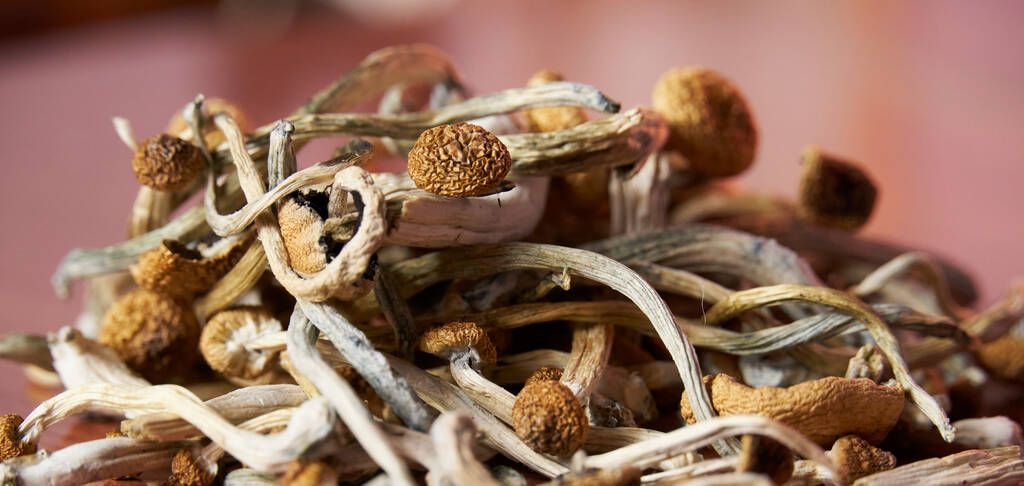The psychedelic compound psilocybin “showed promise in treating depression and anxiety, with notable safety profiles”, according to a new study.

Dried psilocybin mushrooms.
“The purpose of this review was to provide a narrative of published articles that investigated the effect of psilocybin, which has been designated as a “breakthrough therapy” by the FDA, in the treatment of depression”, states the study, published in the May, 2024 issue of the journal Clinical Psychopharmacology and Neuroscience. “FDA designated psilocybin as a “breakthrough therapy” for the treatment of treatment-resistant depression (TRD) in 2018. This paper provided a review of psilocybin’s potential role in treatment of depression by focusing on published clinical trials.”
The abstract of the study, which was also published online by the US National Institute of Health, states that numerous studies have shown that “psilocybin manifests antidepressant and anxiolytic effects by increasing glutamate transmission, reducing brain inflammation, decreasing default mode network activity.”
In terms of clinical trials, “eleven studies (six open-label and five double blinded randomized clinical trials [DB-RCTs]) trials exploring psilocybin’s impact on depression were found. Among open-label studies, a pilot study on TRD patients demonstrated significant reductions in depressive symptoms after two psilocybin sessions.”
Researchers state that “Psilocybin also improved cognitive bias associated with depression. Among five DB-RCTs, two showed that psilocybin led to significant reductions in anxiety and depression in cancer patients, and the improvements sustained for over six months. In MDD, psilocybin showed rapid reductions in depression, with higher remission rates compared to escitalopram in a DB-RCT.”
The study states that “The last DB-RCT showed that in patients with TRD, a single dose of psilocybin 25 mg, but not psilocybin 10 mg, resulted in superior antidepressant effect than psilocybin 1 mg.”
“Overall, psilocybin showed promise in treating depression and anxiety, with notable safety profiles”, claim researchers. They conclude by stating:
-
In summary, when used as an adjunctive therapy in psychiatric treatment, psilocybin shows a high potential for antidepressant effects, and these effects can persist over an extended period. Furthermore, there is research indicating its effectiveness in improving depression, anxiety, and quality of life in terminally ill cancer patients when used appropriately. Therefore, when used correctly, psilocybin is expected to have high clinical utility. Finally, as there have been cases of misuse in the past in the United States, appropriate regulation, and a high level of responsibility from expert groups are deemed necessary.







